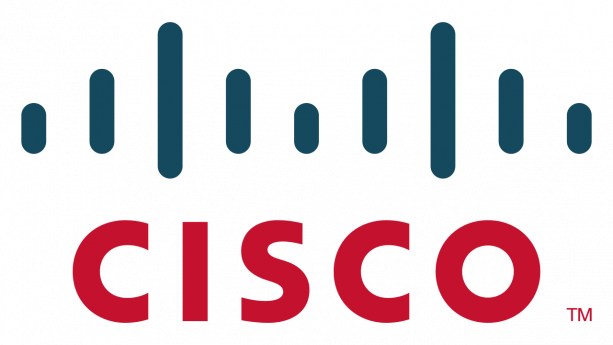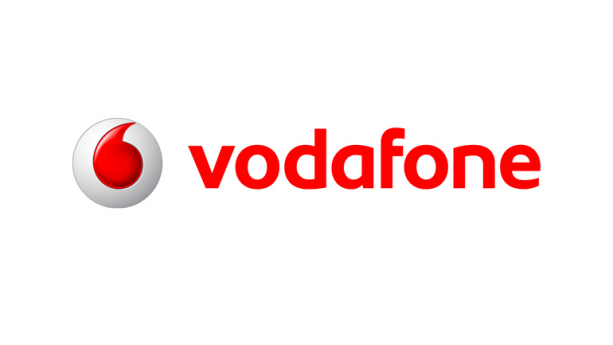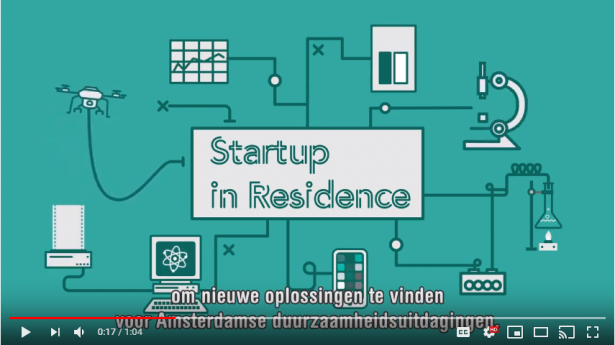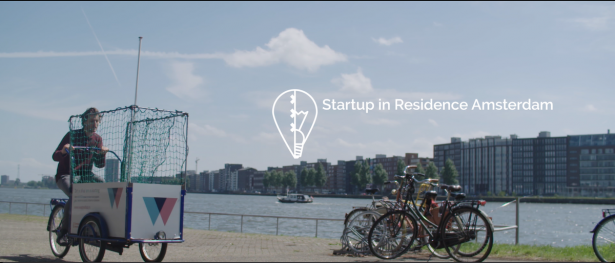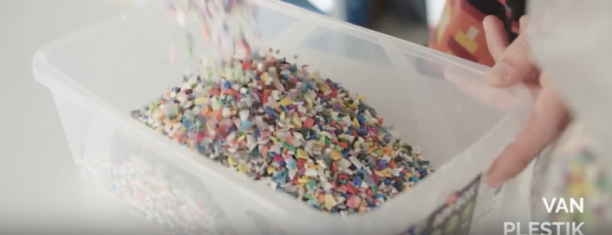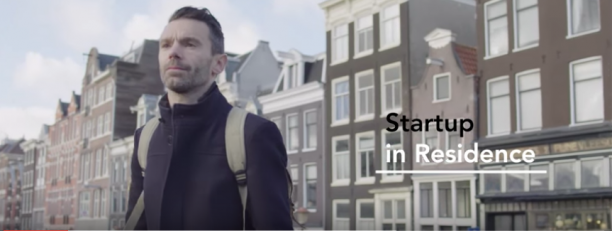Stay in the know on all smart updates of your favorite topics.
SHARE YOUR STORY AND MAKE AN IMPACT! Participants involving for documenting and mapping Chinese diasporic heritage in the Netherlands

Almost in every metropolitan city in the world exists a Chinatown where Chinese diasporic communities live and conduct commercial activities. In recent years, many countries have started listing and conserving Chinese diasporic heritage as their dynamic cultural resources that represent human migration histories and cultural diversity.
Chinese diasporic communities came to the Netherlands in the early 20th century. The Chinatown in Amsterdam is one of the main Chinatowns in the Netherlands, and is well-known in Europe. However, very few studies in the field of heritage management reveal and discuss the cultural significance (heritage attributes, values from various stakeholders) and management models.
We are researchers from the UNESCO chair in Heritage and Values, TU Delft. We are now looking for participants for a research project on Chinese diasporic heritage in the Netherlands, also called “共同保育我們的唐人街遺產” in Chinese. If you:
- come from a Chinese family with a migration background
- (used to) live in/work in/have emotional connections to Chinatown areas
- would like to share your stories/interests about Chinese diasporic heritage in the Dutch Context
......
Join us for this initiative for understanding, documenting and mapping the place where we all belong! You will be able to tell your own heritage, histories and stories, and encounter dynamic groups of heritage enthusiasts. Your participation will help us understand further the vibrant cultural legacy, which is valuable for keeping and telling future generations.
Feel free to fill in or share this participant form. We contact you and organize further activities (e.g. interview, focus group meeting, workshop, etc.) in the future.
For more information, you can also reach us through:
- Email: yan.zhou@tudelft.nl
- Tel: +31(0)647824405
- LinkedIn: https://www.linkedin.com/in/yan-zhou-45a79b290
_____________________________________________________________
Yan ZHOU (PhD researcher)
Dr. Ana PEREIRA RODERS (Professor)
Dr. Lidwine SPOORMANS (researcher & lecturer)
TU Delft – UNESCO Chair in Heritage and Values
Faculty of Architecture and the Built Environment
Floating Urban Development Challenge; Co-creating imaginable, workable and attractive scenarios
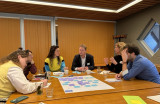
Due to lack of space and climate change, the future of living might need to partly move on to water areas. In our history of conquering the water, the Dutch have a head start in some of the challenges associated with living on- and with water. Researchers and designers are therefore imagining and conceptualizing floating urban development. However, to make it a truly realistic and imaginable future scenario, there are more hurdles to overcome. To realize floating neighborhoods, we’ll need to find solutions for more than only the technical aspects, like; financing, community support, ecological aspects, affordability and political support.
Overcoming these barriers will be difficult. We’re currently focusing on urgent (housing)crises and our collective belief on urban development is mainly focused on ‘family apartments on land’. This challenge revolves around creating imaginable and workable scenarios of urban development on water.
True Price Lab is launched

The True Price Lab is a project focusing on willingness to pay the true price for food and drink.
From 26 February to mid-June 2024, the restaurant and espresso bar in the Corry Tendeloo Building of the Amsterdam University of Applied Sciences will be dedicated to the True Price Lab. For four months, students and staff will be able to choose between paying the normal or true price for a number of products. This project is an initial exploration of consumers' willingness to pay the true price, which includes hidden environmental and social-impact costs.
True price versus consumer price
The true price can be defined as the price applicable after calculating and improving the true price of a product. The true price is based on the retail price plus the sum total of external social and environmental costs. Traditional pricing disregards these external costs, which are effectively paid for by society. For example, the retail price of a cup of coffee does not include the environmental damage of pest control or the underpayment of the farmers who grow the coffee.
The full extra amount that participants pay when they voluntarily opt for the true price will go to the non-profit organisation Solidaridad. Solidaridad wants to make the world a place where everything is made and bought in solidarity with people, the environment and future generations. Visitors to the restaurant and espresso bar can learn more about what their contributions will be used for by scanning a QR code.
GEMINI: Greening European Mobility through cascading innovation INItiatives
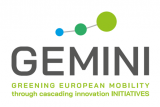
Context
At the heart of the GEMINI Project lies a commitment to fostering innovation and to accelerate the transition towards climate neutrality in mobility solutions.
Goal 11 of the UN Sustainable Development Goals advocates for access to safe, affordable, and sustainable transport systems. Nowadays, transport plays a significant role on air pollution and is one of the major sources of greenhouse gas emissions and is the only sector in the EU with increased Green House Gas (GHG) emissions compared to 1990.
The promotion of sustainable and innovative mobility solutions can help towards reducing GHG and carbon footprints, improving air quality, and achieving climate goals.
Project brief
The GEMINI Project (2023-2026 “Greening European Mobility through cascading innovation Initiatives” is a Horizon Europe funded project with 43 partners led by the Urban Electric Mobility Initiative (UEMI).
To accelerate the transition towards climate neutrality, GEMINI aims to foster widespread adoption of sustainable shared mobility solutions. To achieve this, the project will develop and test innovative business models for New Mobility Services (NMS) such as shared connected automated vehicles and shared mobility public transport through public-private partnerships. The NMS business models will be demonstrated in ten European Cities (Amsterdam, Copenhagen, Helsinki, Munich, Leuven, Ljubljana, Paris-Saclay, Porto and Turin).
Additionally, GEMINI will create digital tools and platforms that accommodate various mobility services, promoting collaboration and integration within the mobility sector. The project will actively engage stakeholders in the co-creation process, introducing Mobility as a Commons (MaaC) and incentivizing behavioural shifts and user acceptance of these new mobility options.
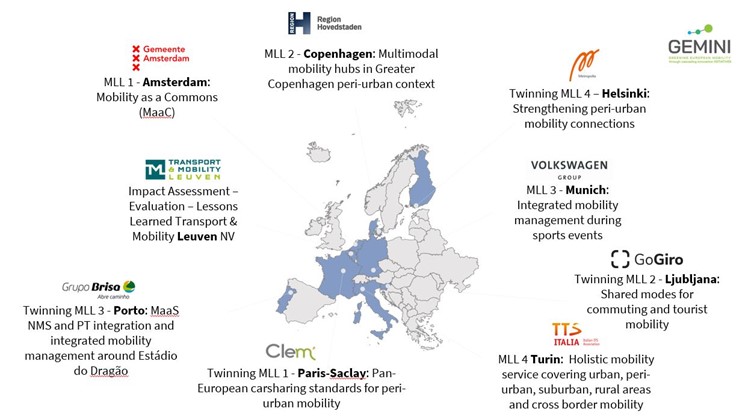
Furthermore, GEMINI will formulate policy recommendations to enable the scaling up and replication of successful mobility solutions. By aligning with Sustainable Urban Mobility Plans (SUMPs) and urban mobility planning frameworks, the project aims to contribute to a comprehensive policy package that guides and incentivizes future mobility innovations. The GEMINI project envisions fostering sustainable, accessible, and affordable shared mobility solutions that contribute to a safer and more environmentally friendly urban mobility landscape.
Objectives
- Develop and test sustainable business models for New Mobility Services (NMS) to increase shared mobility solutions (MaaS and MaaC) for various user groups, including enterprises, families, and tourists.
- Create digital enablers, including collaboration platforms and multimodal MaaS solutions, to integrate and facilitate a wide range of mobility services.
- Actively involve stakeholders in the co-creation of new mobility options and integrate Social Innovation practices to incentivize behavioural changes and user acceptance.
- Formulate policy recommendations to support the scaling up and replicability of successful mobility solutions, contributing to the development and implementation of SUMPs and urban mobility planning frameworks.
Cenex NL key contributions
The team plays a vital role in developing policy recommendations and technology roadmaps to accelerate the deployment of innovative mobility services. Through collaboration with local authorities in twinning cities, these roadmaps will align with the fast-track deployment of shared mobility trends in the short and medium term. Additionally, Cenex NL will contribute to the development of the Handbook consolidating the project’s learnings and offering practical guidance to cities and citizens across Europe.
This project has received funding from the European Union’s Horizon Europe research and innovation programme under grant agreement No 101103801.
Pientere Tuinen

Pientere Tuinen is een 3-jarig project dat begin april 2023 is gestart. Tot eind 2023 kunnen nieuwe deelnemers aansluiten bij het grootste participatieproject in Nederland. Pientere Tuinen is een samenwerking van 7 publieke en private partijen.
De aanpak in Pientere Tuinen draait om drie samenhangende onderdelen.
1. Data verzamelen met een slimme sensor en een interactief/educatief dashboard van de eigen tuin voor de individuele inwoner,
2. Kwantitatief (data-analyse) en kwalitatief (interviews/surveys) onderzoek naar strategieën voor een gezonde leefomgeving en duurzame gedragsverandering,
3. Advies op maat aan bewoners over de inrichting en het beheer van de tuin
Het doel van Pientere Tuinen is een groenere, gezondere leefomgeving te creëren door het bewustzijn en de motivatie bij tuinbezitters te vergroten. Dat doen we door data te verzamelen, onderzoek uit te voeren en meer maatwerk te bieden in de advisering en voorlichting aan bewoners.
Enkele voordelen van uw deelname aan Pientere Tuinen op een rijtje
- Tuinbezitters krijgen een bodemsensor die drie jaar lang hitte, bodemkwaliteit en het vochtgehalte meet, waarvan resultaten zichtbaar zijn op een dashboard
- Tuinbezitters krijgen (mede op basis van de data) specifieke voorlichting voor het vergroenen van de tuin door middel van tuintips, stappenplan en mogelijke (wijk)workshops
- Deelnemende organisaties zijn onderdeel van het grootste participatieproject van Nederland met ca. 5.000 deelnemers en meetpunten door heel Nederland
- Deelnemende organisaties worden betrokken bij twee langdurige, landelijke onderzoeksprogramma’s naar motivatie voor vergroening en gedragseffecten van verschillende interventiestrategieën, en data-analyses van milieu- en gezondheidsaspecten
- Als organisatie bent je zelf als partner zichtbaar in een landelijke PR- en communicatiecampagne rondom het project.
- Je leert zelf binnen de community over structurele, duurzame vergroening met uw inwoners onder andere van de onderzoeksprogramma’s en andere projectpartners
Energy Lab Zuidoost

Amsterdam Zuidoost aims to be energy neutral by 2040. To reach this goal, significant steps need to be taken. Not only do we need new technologies, there is also a need for smart ways to organize the transition, and for adaptations to our lifestyle. This requires cooperation among many different parties. Both from the government and residents, as well as from companies and researchers. Energy Lab Zuidoost brings these parties together.
Energy Lab Zuidoost
The Energy Lab Zuidoost is an initiative of the AMS Institute, the City of Amsterdam and the Urban Energy Institute of TU Delft. By experimenting together in different ‘Living Labs’, they develop and test new innovations in a real-life environment. This helps understand what works and how to scale and implement these innovations in Amsterdam Zuidoost and other metropolitan environments.
The Energy Lab Zuidoost ensures the exchange of knowledge between different projects, organizations and disciplines. It connects scientific expertise to the urban challenges in Zuidoost and brings together academics from various disciplines. The ambition is to share the knowledge, so the innovations can be applied throughout Amsterdam and beyond.
Energy Lab Zuidoost focuses on three main topics around which they develop pilots and experiments:
- The sustainable renovation of homes
- Low temperature heat networks
- Local smart energy systems
For more info see the full animation about Enegry Lab Zuidoost (Dutch with English subtitles) on the AMS website >>
Observatory of ideas

Solidary, Creative Economy, for Communities and With Communities!
Thousands of other initiatives around the world!
(Ana Luíza Farage Silva)
At some point people realized that they needed each other to do something other than "subsist". From there, they decided to organize themselves in something called communities in order to improve their lives and practice a good "survival". Over time, they realized that the law of the strongest could hurt and decided to affirm social contracts to live together and in harmony.
Some people understood that they should give up some freedoms for this, others did not. Over time, these communities have been forming their stories, generating their identities and dynamizing their cultures. When communities became organized, they started to be called societies.
How many societies do we know? How many societies do we live in? Within these social contracts, many have little and few have a lot. Much what? Wealth? Yes, few have access! Access to quality education, decent health, respectful housing, nutritious food and so on.
How many can do what they want and how many cannot do what they need? It is in this concern that I perceive (as several others have already noted) that everything tends to come together. The better structured places attract bigger investments that generate bigger chains that attract even more investments and keep developing (or just growing) more and more. The point is that where there is little, little remains.
Does it have to be this way? If you were a government official and were going to choose to develop a state, would you give growth incentives to regions that are already more advanced or encourage the development of those that still have almost nothing? The prudent answer may be: "it depends" ... if you just want to develop faster, it may be easier to encourage the growth of the wealthiest regions.
After all, their chain is greater and they can “pull” other cities in the process of growth. But if you think about it on the other hand, you can see that there is no certainty that the poorest cities will be fostered by the richest. Will the access ever get there? With this in mind, several concepts and practices have been developed. Have you ever heard of Creative Economy? Basically, knowledge, creativity and intellectual capital are the production factors of this economy.
In this process, cultural production is used as a historical factor in the formation of identity and income generation in that community. In other words, a new look at the solution of the structural problems of society, the economy and culture are sought from the identity of that population.
In other words, development is sought from the convergence and respect for the roots of that people's history with cultural, social and economic objectives. Discussions, initiatives and studies have been taking place throughout Brazil with the aim of expanding this concept: the first International Forum of Creative Cities in Rio Quente took place in September 2013 http://rioquente.go.gov.br/cidades-criativas/, the IV Minas Gerais Meeting of Public Administration, Solidarity Economy and Social Management (IV EMAPEGS) addressed this theme in Viçosa this year http://www.emapegs.ufv.br/ and so on.
In addition, another concept has been addressed, created and practiced. Have you heard of Solidarity Economy? The concept of solidarity started to be guided at the end of the 18th century, but it has not yet been completely assimilated to the market. In this context, solidarity economy means interdependence and is based on the principles of cooperation, self-management and brings an economic dimension to society. In other words, we think of a market geared towards people, not people geared towards the market.
Despite the various difficulties faced by the Solidarity Economy, such as mapping, production flow, obtaining credit, advice and collective work, many advances and initiatives have taken place in Brazil. Have you heard of the Center for Solidarity Economy of Tocantis? UFT's NESOL? They have been working hard on this process: http://www.fapto.uft.edu.br/conhecimento/index.php/uft/14-nucleo-de-economia-solidaria-da-uft-nesol. Many communities have also realized that they live on the job, but remain in poverty. So they decided to challenge all the pre-established and create social currencies. That is, they realized that they had to develop some way to encourage the money to circulate more within the community itself, with the possibility of exchanging it for the real. Some initiatives have been implemented in Brazil. The first was Banco Palmas, at the Palmeiras complex in Fortaleza (CE). http://www.bancopalmas.org.br/oktiva.net/1235/nota/12291. Today there are more than 110 community banks, a chain, across Brazil. Several other initiatives in the world have been taken, but it is clear that challenges abound.
Wicked Problems
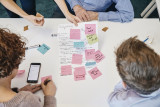
Te wicked? Niet voor ons.
Wij werken allemaal aan urgente, complexe, maatschappelijke uitdagingen. Issues die schier onoplosbaar lijken, van dilemma’s en paradoxen omgeven, nog niet duidelijk hoe het moet. Wel is duidelijk dát het moet, dat we elkaar nodig
hebben en dat we er NU aan moeten beginnen. Om met de woorden van Jan Rotmans te spreken; we leven niet in een tijdperk van verandering maar in een verandering van tijdperk. En hier hoort een nieuwe gereedschapskist bij.
En of je nou aan energietransitie werkt, andere mobiliteitssystemen, creëren van waterstofhubs, peer to peer autodeelsystemen, het maakt niet uit, we zien dat al deze opgaven op enig moment tegen gelijksoortige barrières aanlopen. Op samenwerking, financiering, privacy, onvoldoende aansluiting op de maatschappij, om maar een paar voorbeelden te noemen.
Unieke samenwerking
Als Amsterdam Smart City netwerk willen en kunnen we deze opgaven niet laten liggen. Door het bundelen van onze kennis en expertise kunnen we als netwerk iets unieks bieden en de wil en durf tonen om deze barrières te doorbreken. De betrokken partners die dit uitdenken en begeleiden zijn RHDHV, Kennisland, Drift, NEMO, Arcadis, Alliander, HvA en Metabolic. Zij bundelen hun expertise en ervaring om de echte vragen boven tafel te krijgen, tot nieuwe manieren van samenwerken te komen en barrières te doorbreken. We richten ons met name op de start van de samenwerking. Gezamenlijk ontwikkelen we een ‘wicked problem aanpak’. Op een nieuwe manier, lerend door te doen, exploratief.
Waar moet je aan denken?
Wat is eigenlijk het echte probleem? Wiens probleem is dit? Hoe kijken anderen er tegenaan? Welke andere partijen lijken nodig? Hoe vind je ze? Hoe ga je om met eigenaarschap en botsende frames? Hoe zorg je dat je al in
een vroeg stadium de maatschappij (bewoners, ondernemers, werknemers, etc) betrekt en hun ervaringen in het project trekt? Het wicked problem team zet nieuwe methoden in voor het beantwoorden van deze vragen. En het creëren van de benodigde commitment om het vraagstuk aan te pakken. Niets staat van te voren vast, want we passen ons aan aan wat we tegenkomen. Met elkaar ontwikkelen we een nieuwe aanpak om de barrières te doorbreken.
Marineterrein Amsterdam Living Lab

Like cities worldwide, Marineterrein Amsterdam faces major challenges. For example in mobility, circularity, and (ethical) digization. To come up with innovative solutions, there is a need for physical location, knowledge and collaboration. Marinetterein Amsterdam Living Lab (MALL) is a place where this happens.
The Marineterrein uses the terrain as experimental environment for its own development. The partners work together to stimulate collaboration between companies, scientists, students and government agencies. This creates (scalable) experiments that are tested on the grounds, and ultimately applied in urban environments.
MALL is a place to research, experiment and test in a real-life setting. To achieve this MALL partners bring together their expertise, network, and communities in the field of research, innovation, urban development and experimentation at this unique location in Amsterdam.
Everyone is welcome to test at the Marineterrein. Given the special location, high demands are made on parties who come to develop and test on the Marineterrein. In addition to thematic alignment with the themes of the parties, careful consideration is given to whether the applications are innovative, whether they ensure connection between people and knowledge and to opt for a clear focus within a relevant issue.
Current Experiments
• CINDERELA | CINDERELA is a demonstration plant that transforms urine into nutrient-rich fertilizer. The plant consists of a refurbished shipping container – containing a laboratory and two urine-diverting toilets – and an adjacent greenhouse which also serves as a meeting space.
• Roboat | autonomous floating vessels that create a more dynamic urban infrastructure, and provide new ways of transporting people and goods.
• Space for Food | the European Space Agency (ESA) explores the potential and scalability of applying space technology for applications in urban contexts.
• Smart Roof 2.0 | an innovative, lightweight, blue-green roof equipped with a Permavoid drainage layer that stores rainwater and provides plants with water during dry spells.
Curious to see what else is being tested? Click here for a full list!
Open Calls
• Amsterdam Drone Lab | drone flight testing facility at the heart of the Amsterdam city centre.
Want to start testing in the heart of Amsterdam?
MALL provides a publicly accessible but privately governed site in the heart of Amsterdam. This ensures you to test and implement solutions in the public space under credible circumstances with less restrictions. From quay walls, to buildings and roofs. The infrastructure of the site has been set up in such a way that experiments can be easily set up.
Submit your experiment!
Collaboration
MALL is a collaboration between Marineterrein Amsterdam and Amsterdam Institute for Advanced Metropolitan Solutions, with partners Amsterdam Smart City and NEMO Science Museum.
Amsterdam Innovation Tour
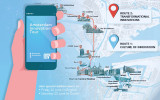
Those with an interest in urban innovation topics can now discover what makes Amsterdam an innovative, smart city without the timing and logistical constraints of a guided tour. The new self-guided Amsterdam Innovation Tour enables local and international stakeholders to immerse themselves in learning about the City’s innovative projects at any time — day or night.
A Living Lab Way of Working
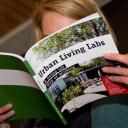
Providing you practical tips and tricks to improve your living lab. Check out the publication in the link below!
CTO Amstelveen
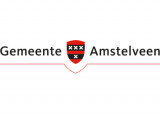
Temporary assignment.
City Protocol
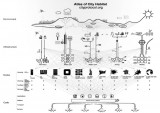
By the end of 2018, City Protocol ended. The common solutions and principles are still relevant. Therefore, you can still find these useful insights on this page.
Cities have become the key nodes of the global economy, acting as magnets for the new hyper-connected communities. They play a singular role as hubs of innovation and sources of universal flows of information—produced by people, things and the interactions between them. How can cities approach these challenges and adopt sound financial strategies to become more livable and self-suficient, with empowered citizens?
1) A collaboration and knowledge sharing framework for the development of a new science of cities.
2) Establishment of the basis for the evaluation and accreditation of standards and recommendation documents for city transformations.
3) A set of methods and tools for system-level data analysis and representation, and a city knowledge base into specific learnings.
4) A ‘city language’ and set of common images for describing the City Anatomy.
5) Building a repository of documents describing projects, policies and recommended practices which may be tested in cities working and learning together to tackle their common transformational challenges.
6) A network and/or platform for education and knowledge sharing among all members.
Startup in Residence

Founded in Amsterdam in 2015, Startup in Residence is a collaboration between startup companies and the local government. The project invites Dutch and international startups to tackle a variety of social challenges with innovative solutions.
Startup in Residence Sustainability 2019
<https://youtu.be/hhX-vOxwHto>
Sign up now: <https://startupinresidence.com/amsterdam/>
Startup in Residence
<https://youtu.be/nXe6DEpDbno>
Startup in Residence 2.0 (2016/2017)
<https://www.youtube.com/watch?v=6nd6wJo01OI>
Startup in Residence 1.0 (2015/2016)
<https://www.youtube.com/watch?v=ykQoktCrE8Q>
Stay up to date! Subscribe to our Newsletter
Partner
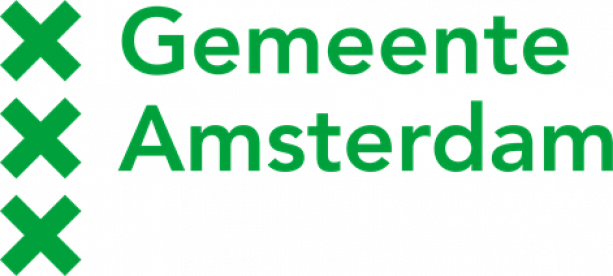
Knowledge mile
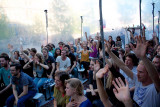
The Knowledge Mile is a livinglab in Amsterdam that runs from the Amstelplein to the city hall of the municipality of Amsterdam. The Wibautstraat and Weesperstraat are the two main streets at the centre of this area. Both are well known for the urban challenges they face, such as high traffic volumes, flooding and air pollution. The area is also known as a world-class knowledge cluster with the campusses of the Amsterdam University of Applied Sciences, the University of Amsterdam and Amsterdam University of Arts.
The Knowledge Mile is a place to establish crucial connections and to achieve productive partnerships, fruitful networks and creative interaction. With a community of 30.000 residents, 60.000 students and almost 200 organisations, hotels, museums, social and municipal institutions together we aim to improve the quality of life in the area, by improving and sharing knowledge and facilitating new connections at our Meetup’s. This is a space to interact and share ideas.
The Knowledge Mile is also a business investment area where all organisations join forces to improve the work/life climate in the field of joint investments in communication/marketing, security, viability and physical movement.
Smart Entrepreneurial Lab

Contribute to a smart city where urban stakeholders learn to innovate together, co-creating solutions that enhance urban quality of life and generate new business opportunities.
Are you interested in doing research together or do you have a smart city question? Get in<a>touch</a>!
Stay up to date
Get notified about new updates, opportunities or events that match your interests.

